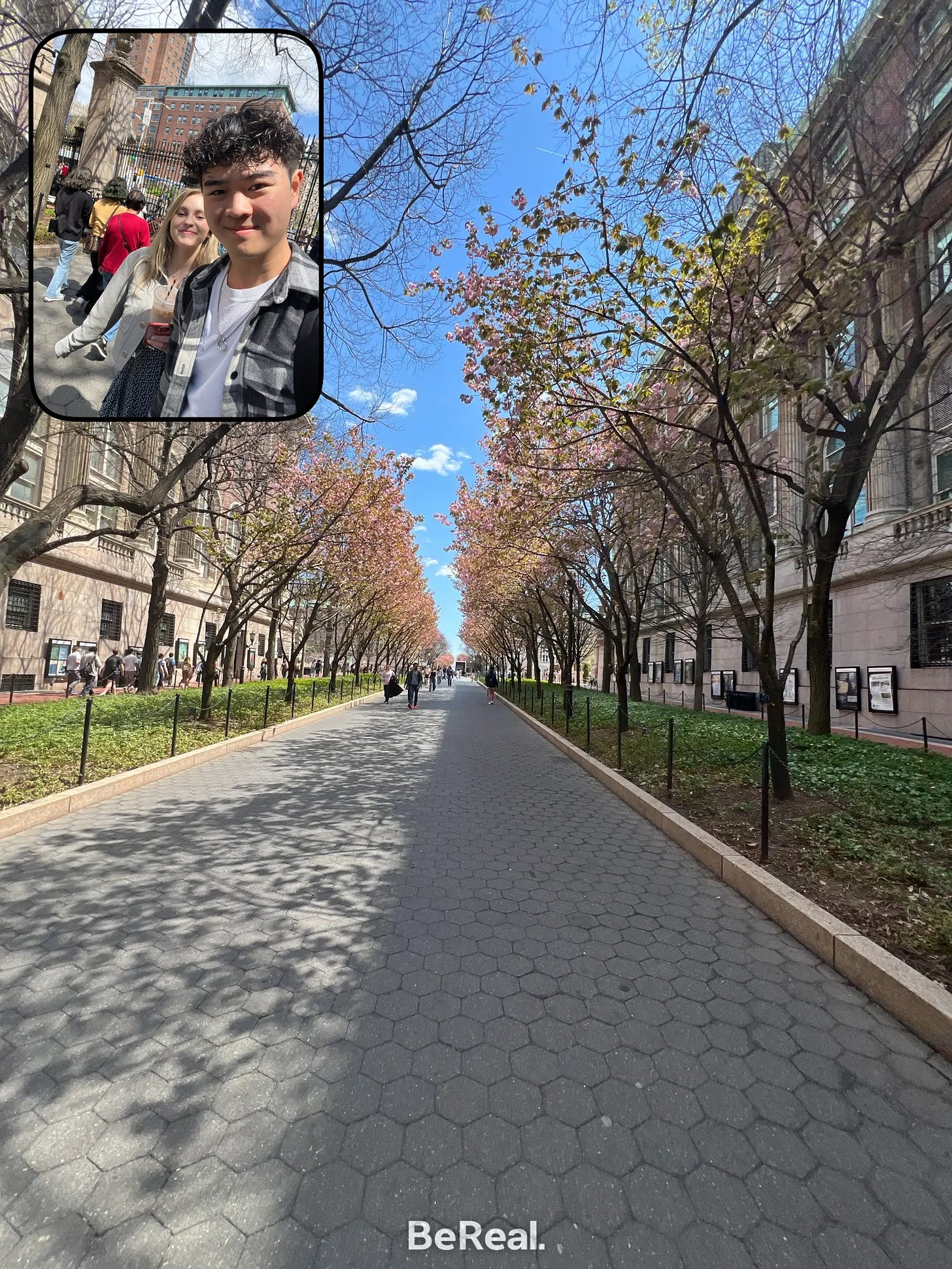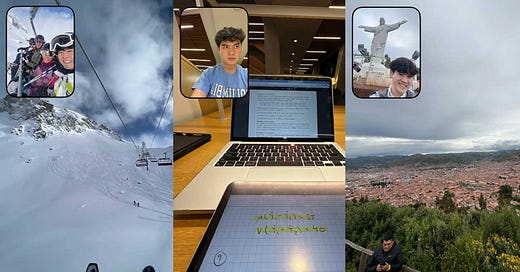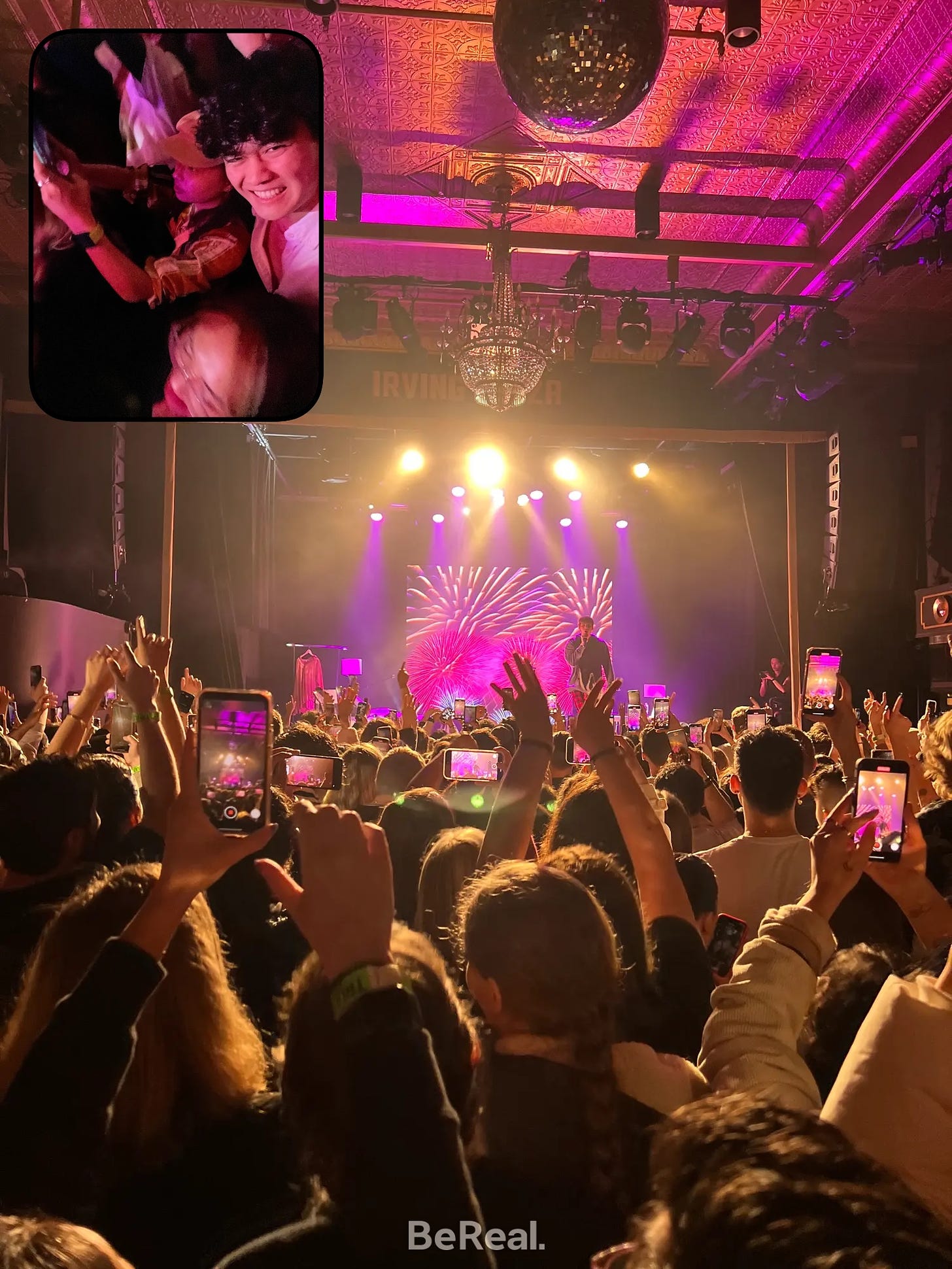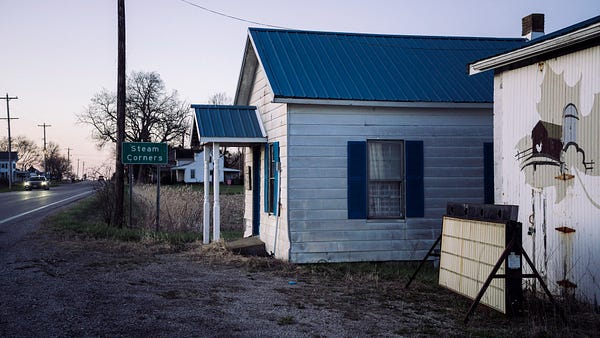
The Free Press

At 9:01 p.m. on Monday, my phone buzzed with a notification: “⚠️Time to BeReal.⚠️ 2 min left to capture a BeReal and see what your friends are up to!” I clicked the notification and snapped a photo, which captured images with my front and back iPhone camera. I was on a street corner, on my way to the grocery store. It was pretty dull.
But BeReal’s premise is to capture “real” moments like this one. The promise of BeReal is for users to escape the artificiality of other social media platforms and instead share uncurated moments in real time. Once a day, at a random time, the app prompts you to post a picture of whatever you’re doing. You are able to see other users’ photos only after you post your own.
Since its inception in December 2019, the photo-sharing app’s popularity has rocketed from nonexistent to viral, before dropping off a cliff. And it’s unlikely to make a comeback. BeReal was acquired in mid-June for €500 million, or about $535 million, by Voodoo, a French video game developer.
“Following 24 months of initial explosive organic user growth, BeReal’s expansion stabilized while it focused on building out its infrastructure,” Voodoo said in a statement—a polite way of saying the app plateaued.
I downloaded BeReal in September 2022 and quickly became a regular user. For much of that fall, whenever the app went off I snapped a picture of myself, whether walking through campus, attending a party, or even just staring at my computer in my room. It was a respite from Instagram, which has become a way for people my age to mindlessly scroll through an infinite stream of internet memes or bludgeon their own mental health with endless pictures of gorgeous strangers.

On BeReal, I just got to see who my friends were with, where they were, and what they were doing—studying, eating lunch, lying in bed—for a brief moment each day. It was social media without the social posturing.
But as the app spread through my college, it became clear that there was an implicit competition over who “won” BeReal each day. If the BeReal went off on a Friday night, who was in the library and who was on Frat Row? Who was binging Netflix and who was out and about in the city? During school breaks, who was traveling to the coolest destination?
I found myself curating my posts more and more. If I knew I was going to a party at night, but the alarm to post went off during the day, I’d wait until the evening to take my double-picture. The result of such a tactical delay is colloquially known as a “BeFake.”
Others who used BeReal did the same, posting only when we had something interesting to share. The authentic BeReals—the ones that showed people going through the repetitions of college life—got boring quickly. Looking back at my own BeReal archive, I see that I happened to capture a few unique moments: a speech from President Trump at a conference I attended last summer, a live concert by one of my favorite artists, and most recently, the first NYPD raid on Columbia’s Gaza Solidarity Encampment. But for every interesting BeReal, there are five of me attending a lecture or walking down the street.
Real life often looks dull, and BeReal found out the hard way. At its peak in August 2022, the app boasted an estimated 73.5 million monthly active users. Now, the app has 40 million, according to Voodoo. With declining numbers of active users, stagnating growth, and the novelty of the app’s concept wearing off, BeReal was set to run out of funding this year, before its acquisition.
BeReal is not the first app that overestimated users’ interest in reality. In 2018, the app Bounce launched, promising “real” online dating by setting up users on dates they were expected to show up to that night. The hope was that it would solve the problem of endless swiping and indecision, and it banned users who didn’t show up. That app is now defunct. In 2015, Beme tried to combat the rise of highly edited social media content by forcing users to post short videos without being able to preview them or edit them. CNN bought that app in 2016 and later shut it down.
There was Path, which allowed users to share a stream of photos but capped a user’s following at fifty. The app, which was introduced in 2010, later raised the cap to 150 friends, then removed it entirely. Path was ultimately acquired in 2015 and had shut down by 2018. I was once a user of Houseparty, which facilitated live video chats with up to eight of your friends at a time. The app, which started in 2016, had a resurgence during the pandemic before it shut down in late 2021.
It’s always fashionable for young people like me to complain about platforms that promote phoniness and unattainable lifestyles. The mission of the various alternative apps meant to showcase that real life is seductive. But we can’t stand being our true selves for long.
We get the social media we deserve, and like the digital substance abusers we are, we want the content that feels best in the short-term. We want only to see the prettiest, most successful, and funniest versions of ourselves and others online. For a brief moment, we experienced sobriety with BeReal, before falling back into the comfort of endless scrolling on the sparklier apps. BeReal certainly won’t be the last attempt to cure us of our addiction, but it is the latest reminder that when we’re online, our desire to be better versions of ourselves will always surpass our desire to be real.
Jonas Du is an intern at The Free Press. Read his report on how protesters at his school, Columbia, had their criminal charges dropped. Follow him on X @jonasydu.
For more dispatches from Gen Z, subscribe to The Free Press:















So the invalidated went to a new app to feel valid only to become invalidated when feeling valid stopped? You don't say...
The same can be said of our government, we want only the best views of it, not its reality.
Or as have said for awhile, we get the government we deserve.